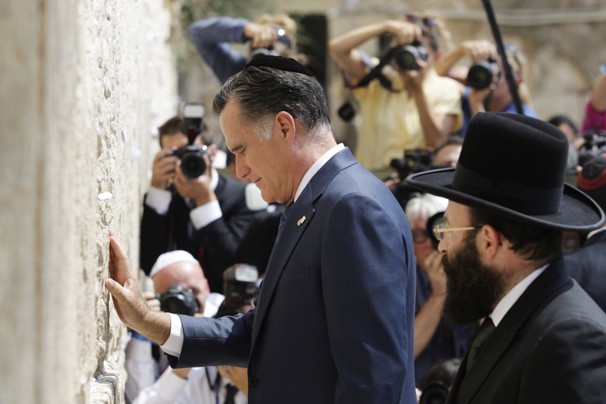
All to Play for in the Home Stretch
It’s a little over three weeks to go before America votes in the 2012 presidential election, and things have suddenly turned interesting. For a while, orthodoxy was that Obama was likely to get re-elected and, maybe, by a substantial margin. As late as early October, Romney was still seen as a weak candidate with a history of vote losing gaffes. Those of us who thought the GOP might win the White House were treated like Right-wing Cassandras. It seemed like the European Union was more likely to win a Nobel Peace Prize…
Suddenly, the national polls are even and the swing states are getting close. At this dramatic point in the race, I’d make the following observations…

The Best Defence is Dialogue
The recent visit to Beijing by the U.S. secretary of defense, Leon Panetta — which coincided with State Department statements that the U.S.-Japan security treaty would apply to the disputed Senkaku Islands — highlights the growing tension with China over America’s military presence in Asia, Chinese efforts to counteract it, and the dangerous misperceptions that can arise if defense strategy gets in the way of diplomacy.

Does the Republican Party actually know who votes for them?
You would think that the US presidential campaign teams would have a pretty good idea of what sort of person is likely to vote for them. A recent book suggest that the Democrats have developed highly complex ways of figuring this out. On the other hand, given two recent events, I’m not sure the Republicans have any idea.

Romney’s Foreign Policy: Careless rhetoric matters
A few days ago, Alexander Ewing posted a “firm riposte” to my blog which criticised Romney and his entourage for their neo-con leanings. Within it he argues that those who claim that a Romney Presidency would result in a return of the neo-cons are simply creating “a storm in a teacup”, and that Romney has used the language of the neo-cons only as a means to distance himself from Obama and portray the President as weak on the world stage. In reality, he argues, Presidents of both parties tend to follow broadly similar foreign policies, regardless of their own ideological leanings or party affiliation. In other words, Romney uses tough talk but it’s largely irrelevant since it won’t alter actual …









